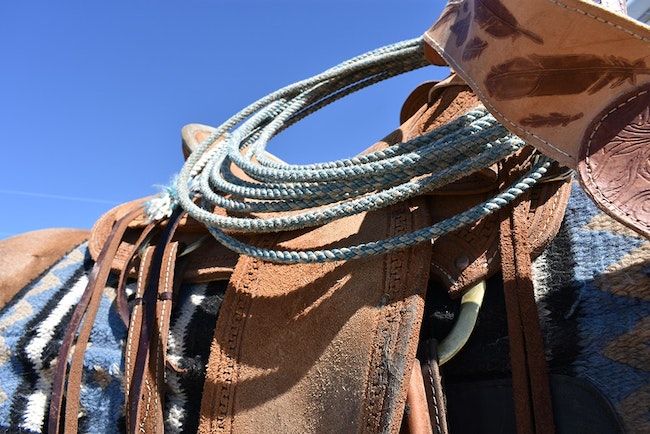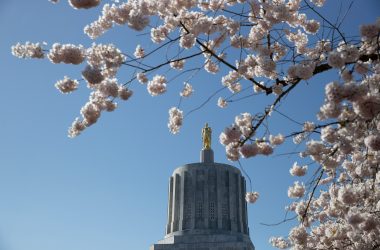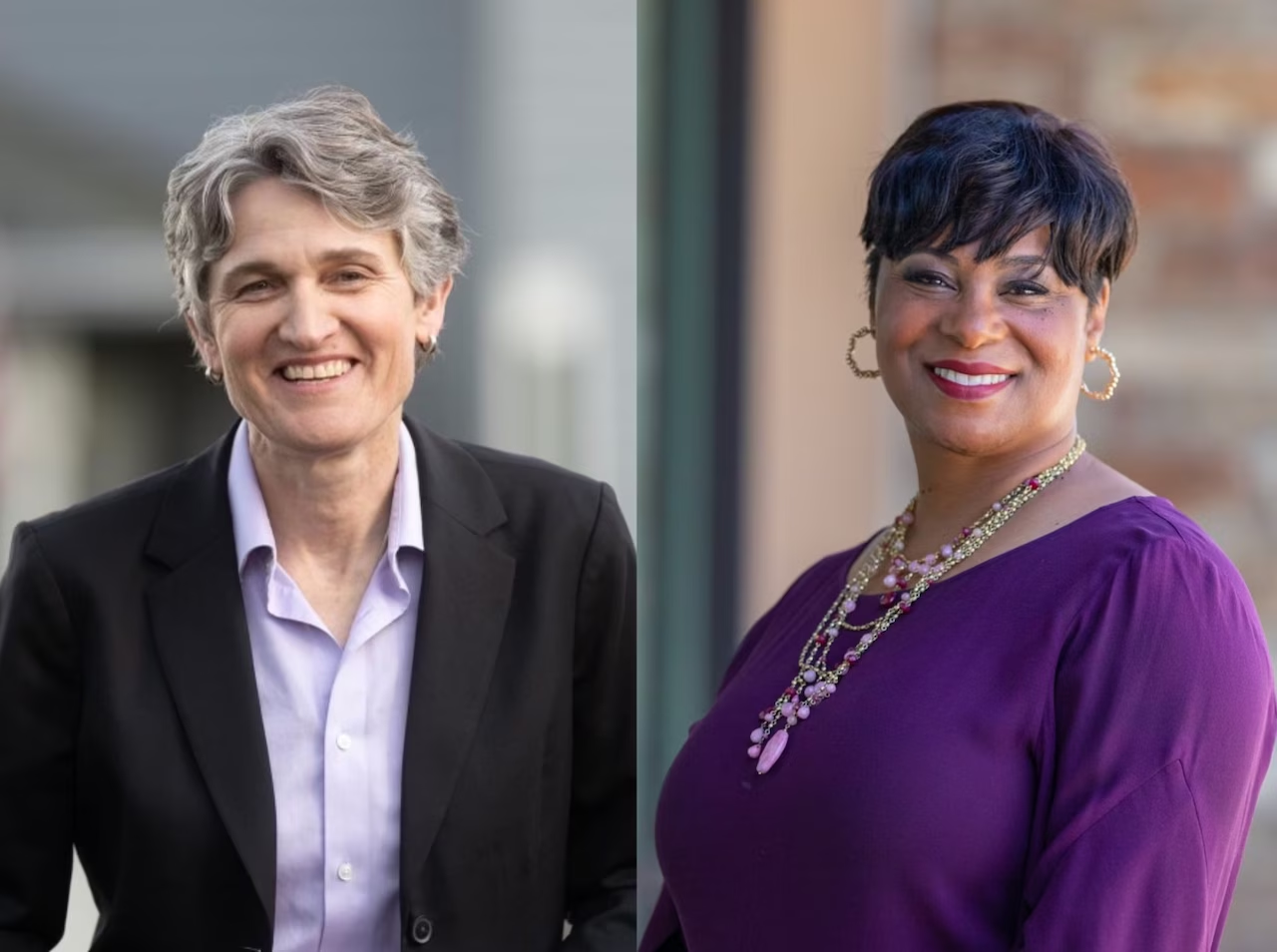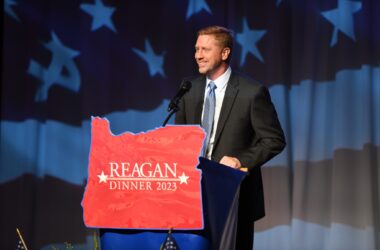
Those who want to be Oregon’s next governor say they will pay attention to rural areas and issues in the state. (Malheur Enterprise)
Rural Oregon would get a lot more attention from Salem based on positions staked out by those running for governor.
Every candidate running was invited to address questions on key issues facing the state. Journalists across the state drafted the following 15 questions, which were distributed to candidates by the Agora Journalism Center at the University of Oregon.
This is part of an unprecedented collaboration among newsrooms to provide voters better information about those who would be governor. The primary election is May 17 and voting is underway now with Oregon’s vote-by-mail system.
Responses are in the candidates’ own words and have been trimmed at the 300-word limit.
To learn more about the candidates: Candidates for Oregon governor tackle state issues in unique Q&A
The question: Much of the economy of rural Oregon is based on agriculture, natural resource extraction and tourism. Agriculture is consolidating, natural resource extraction is in decline, and tourism provides mostly minimum-wage jobs. As governor, what are the first three steps you would take to build a stronger economy in rural Oregon?
Amber R Richardson – Republican
Again, we must de-regulate the red-taping on our businesses, bring our resource industries back, like our logging industry. We need to start talking about our natural gas industry, the jordan cove was a marine gel pipeline. Look, we need to think about engineering smartly without destroying property lines and still creating energy that will crack down on the inflation crsis. It is 2022 we can do this, we have to stop being stone walled, and start being lifted up. Everyone can agree that we need to work together becuase if we do not, we will suffer even more than we already have. The people who claim who have been on our side clearly haven’t. Look what they have done to Oregon. Look how we all are suffering. We have been left with a state of destruction, and they don’t care, they got rich, how do they sleep at night? I really want to know. We need to talk to the experts, real experts and utilize every type of resource and pull our state back to one of balance. We can do this carefully and with great engineering, and with great care for our state.
Betsy Johnson – indepedent
The tone of the question suggests you are dismissing the future of the agriculture, wood products and tourism and hospitality industries in our rural communities. I disagree. Oregon farmers and forest landowners are innovators and as much a part of Oregon’s future economy as they have been in the past – perhaps greater. The nation and the world need safe, high-quality foods to eat and innovative wood and building products for housing – our people are creating them. Oregon nursery producers are the best in the nation. Having represented communities that create food, wood products, and include some of the state’s most prized tourism and hospitality destinations, I know the value of these creative people and industries. Our tourism and restaurant industries are the best representatives of our state’s rich cultural diversity. I am not about to say that any of those industries are past their prime. As governor, I will know there is an Oregon east of Bend and south of Eugene.
Bill Sizemore – Republican
I would begin by promising to veto every ill-advised (I am being kind) bill that radical Democrat legislators from Portland and Eugene try to inflict upon rural Oregon. Timber jobs are in steep decline because of what we did, not because there is a lack of market for forest products. I reject the notion that the timber industry is dead. I have a plan that would bring back small mills to towns across the state and guarantee them access to the timber they need to operate and justify the investment in the infrastructure required to set up new mills or recommission old mills. This would create thousands of family wage jobs. Also, I would change out the unelected bureaucrats running state agencies, personnel who make decisions, mostly by administrative rule, that restrict or prohibit regular and historically respected farm and forest practices.
Bob Tiernan – Republican
Leadership: I’ve been a successful business leader by listening and learning. To build a stronger economy for rural Oregon, I want to understand the challenges. As Governor I pledge to set up my office for two weeks at a time in different geographical areas around the state each year. That way I can experience rural Oregon’s economic problems and possible solutions first-hand. Agriculture Overtime: Although this law just passed, I hope by the time I’m Governor farmers, worker, and advocates on both sides of the issue will have a crop season to consider the unintended consequences. Rural farmers emerging from the pandemic now face skyrocketing fuel costs and shipping problems. This law may push farmers to cut production, go out of business, or leave the state. None of these options is good for Oregon’s rural economy. The law is phased in over five years starting in 2023, so hopefully there’ll be change I can push for in the 2023 legislative session. Administrative rule changes at the State Agriculture Department, or other agencies are also possible. I’ll help farmers as well as workers who don’t want their hours or wages cut as part of those unintended consequences. Wolf Management: Rural ranchers, especially in Eastern Oregon need assistance through the wolf management compensation program. It established a decade ago after these predators were reintroduced to Oregon. I would appropriate at least $1 million from the legislature’s emergency fund or a special governor’s fund for this effort. Wolf attacks on livestock tripled in the past year and over 700 head of cattle went missing in high wolf areas. Most of the current funds were used for prevention or deterrence. We should encourage cattle ranching not send a message that rural Oregon is closed because wolves have taken over.
Brandon C Merritt – Republican – No response.
Bridget Barton – Republican
I spent much of my career as a conservative advocate and commentator in local media. It was my honor to share how weak politicians had allowed radical special interests to starve and decimate rural Oregon. Referring to the hardest working Oregonians who provide our food, fuels, and building materials as “extraction” is cringe-worthy and underlines the attitude problem and imbalance between rural and urban Oregonians that needs correction. Rural Oregonians do not want handouts from state government. They’re fiercely independent and self-reliant, and more than capable of fending for themselves, if government would get out of the way. As Governor, I will unleash rural Oregon from the devastating economic, labor-related and environmental restrictions that weak politicians have adopted to make our rural areas “No Jobs Zones” for the recreational enjoyment of urban elitists.
Bud Pierce – Republican
We need to obtain federal waivers to allow timber harvest on federal lands. We need to allow for mineral extraction. We need to support agriculture and the growing of food by improving the water supplies to rural Oregon. The COVID-19 pandemic has taught us that we cannot be reliant on other countries for basic necessities for our society. Oregon can provide timber, food and crops, and mineral extraction, which can be done in an environmentally friendly way.
Christine Drazan – Republican
I’m a small-town girl. I was born in Klamath Falls into a family and community that was dependent on the natural resource industry for good wages and steady employment. When the mills shut down, it was hard on all of us. Unfortunately, once they closed, most of them never came back. My administration will support natural resource-based industries, like the timber industry in rural Oregon, making this economic engine a part of our state’s future not just the past. That means recognizing that many of the policies being passed in Salem are directly related to the decline in rural Oregon. The recent agriculture overtime mandate, for example, is expected to accelerate the consolidation of family-owned ag operations into corporate megafarms. Despite pleas from the farming and ranching community to veto this bill, Governor Brown signed it into law. I would have vetoed it. I will lead by restoring local control, supporting affordability by lowering taxes and fees and prioritizing our natural resource industries in public policy so communities like the one I grew up in have an opportunity to grow their own local economies again without the weight of a heavy-handed state government stifling opportunity in rural Oregon.
Court Boice – Republican
Warning: The decline of the rural economy is always followed by across the board economic failure. Let’s consider these three symptoms: Agriculture in consolidation is about monopolization of agriculture by corporate farming and off-shore investment in agricultural properties and corporate farming. This is about benefitting shareholders, not the farmers or the economic environment in general. Understand here that declining natural resource extraction is not caused by the market, it’s caused by government over-reach and arbitrary politically developed regulations. Tourism provides mainly minimum wage jobs. These jobs are not value creation or value addition. They’re primarily service jobs requiring no or minimal skills. Skilled and semi-skilled jobs pay living wages and have significant benefits. A faltering or receding activity economy results from failed executive, legislative and fiscal policy. Is the supposition perhaps that these rural industries should be engineered out of Oregon’s future? Everyone involved needs to understand clearly that the government is not in the business of determining who wins and who loses. The nature of the economic base in any locale is a matter for the people of that locale to form in their own decisions and efforts. The market will support it or it will fail. First: Address the symptoms of a troubled over-taxed and over-regulated economic base and its impact on the taxpayers. Second: Understand and respect that rural Oregon is Oregon too. Those rural industries are essential to the future of Oregon. Third is accept the reality that compensation for services is determined in the market, not in a university classroom or the legislature.
Dave W Stauffer – Democrat – No response.
David A Burch – Republican – No response.
David Beem – Democrat – No response.
Genevieve Wilson H – Democrat – No response.
George L Carrillo – Democrat
1. Invest in infrastructure and housing in rural Oregon. Create opportunities to travel to our wonderful tourist cities. By building more affordable homes, more people will want to purchase and live in the rural parts of Oregon. As rural Oregon expands, we will help with funding to our rural county governments and community-based organizations to help remove systemic barriers to address access to services.
2. Invest in clean energy to drive demand and lower inflation. We will help reopen our factories to produce clean energy parts and equipment. We will also invest in education to prepare our job market for these new jobs. Working adults who wish to learn a new clean energy program will receive free tuition.
3. We need to lower the cost of PERS in the local municipalities to extend career options to work within the government. The more teachers we can hire, the more we will be able to reopen our closed schools. We will lower the number of children per class size to provide a more equitable solution.
Ifeanyichukwu C Diru –Democrat – No response.
Jessica Gomez – Republican
First, we need to admit that any decline in natural resource industries has been caused by public policy. Oregon decided it wanted to mandate reduced logging, fishing and other “rural” industries and passed measures to do so. I support opening up our forests to salvage logging and fuel build-up clearance as noted above. Lastly, I would work closely with rural communities – which are not all the same just because they’re “rural” – to determine what they believe would be effective in helping them build their local economy, and then implement policies at the State level to help facilitate that.
John G Presco – Republican – No response.
John Sweeney – Democrat
Yes, we need to fix & build our roads, bridges & ports. As they are needed for business & pleasure.
Julian Bell – Democrat
Work to convert our state to renewable energy. Essentially all the clean energy Oregon can, has been, and needs to be built in rural Oregon. Investing in clean energy infrastructure will grow Oregon jobs and grow our state economy. There is prosperity in clean energy and the main obstacle to converting to a clean economy is not that it isn’t possible, but that people have been hesitant to move away from legacy technologies to an unknown future. We must make the benefits and prosperity of a clean energy economy readily evident to Oregonians.
Keisha Lanell Merchant – Democrat
Align all 200 to 250 rural cities under Parks and Recreations, Forestry Management as structured with Park and Urban Rangers to structure all public lands into national parks and recreation for tourism and environmental justice system for all Oregonians.
Kerry McQuisten – Republican No response.
Marc Thielman – Republican
Most of Oregon’s natural resources are locked away and underutilized. Forests are burning rather than providing economic, tourist, and natural resource extraction value. As Governor, I will increase access to all our natural resources, including fisheries, to everyday Oregonians, loggers, miners, farmers, ranchers, hunters, and fisherman. Government policies of the last 30 years is the cause of the decline in our natural resource industries, and it will take strong leadership to change directions and appropriately access our abundant natural resources.
Michael Cross – Democrat – No response.
Michael Trimble – Democrat
I will increased Oregon’s investment in the Rural Opportunity Initiative by at least 5 million dollars and much more each subsequent year I’m in office. One divide separating rural businesses from urban businesses is infrastructure, particularly access to broadband internet. Modern farms need good digital infrastructure to run well. They use the internet as much as any other business. They have websites and other forms of online marketing. For those who don’t farm but live and work in a rural area, this is also important. Broadband access allows people to telecommute or run a home business. I will be the first governor to make sure that every area of Oregon has access to broadband Internet, not dial up or satellite, but broadband with dsl speeds if not faster. Farming has always been a complex, skilled profession. But today, it requires even more technical skills than before. A modern farmer is as likely to use a drone as well as drive a tractor. Access to great agricultural education means young farmers will get a better start in their careers and find new revenue streams for their family farms. As governor I will make all in-state education free making access to capitol for investing much easier.
Nick Hess – Republican
As governor, my 3 steps are: Make Oregon a hospitable place for businesses by lowering taxes and cutting red tape that prohibits the creation and growth of businesses. Reinvigorate our industries that rely on our natural resources. This includes logging and mining. And future-proof our natural resource jobs by attracting a green technology sector to Oregon industries. Again, one example of this would be adding a wave-powered desalination plant along the southern Oregon coast. It will provide good jobs in a place that desperately needs them and allow for fresh water to be piped into areas hit hardest by drought. And has the possibility to generate revenue for the state by selling off excess water to California. Ensure more inventory of affordable housing across the state. We cannot bring new jobs to Oregon without places to house workers.
Patrick E Starnes – Democrat
Many of our areas where Oregon is experiencing growth in tourism (via AirB&Bs, etc.), we are seeing less and less affordable housing for those who serve our tourists: those who change the beds at the AirB&Bs, pump our gas or serve our meals. As Oregon’s next Governor I will lead the effort to build more affordable housing along the coast or up near our ski resorts for our working families.
Peter Hall – Democrat
I am not concerned with the number of steps, but I will tell you my idea of what to do. I want to get businesses to go out to smaller cities and invest there, especially near interstate corridors rather than pack into already over populated urban areas. Let’s get growth out to where there is room to grow. We also need to work on supporting family farms against corporate domination and giving them the freedom to run their farms as they see fit and get the income they need to thrive. This means also pushing back against factory farms that risk a severe loss in product in the market due to disease or bankruptcy. It all comes down to spreading out resources to create a resilient system that benefits all.
Raymond Baldwin – Republican – No response.
Reed Christensen – Republican – No longer running.
Stan Pulliam – Republican
Again, the first action I would take as governor is to forgive and pay back any COVID-19 related fines that have been levied against Main Street businesses through OSHA. Second, I would look to repeal a slate of legislation that has hurt Main Street small businesses including the gross receipts tax. Finally, I will aggressively pursue opportunities to bring back manufacturing, timber, rail, trucking, and other natural resource job opportunities for Oregon like the expansion of the Port of Coos Bay and the Jordan Cove Pipeline.
Stefan G Strek (Stregoi) – Republican – Declined to participate in the Q&A.
Tim McCloud – Republican
We have to help our existing industries survive, while also encouraging new small business growth. As Governor, I will encourage new small business startups with a 20% cut on state business license fees and assessments for 3 years. I will eliminate regulations that make Oregon less desirable as businesses from relocating to Oregon and ensure that Oregon businesses are able to remain open without the threat of another forced government lockdown.
Tina Kotek – Democrat
As Governor, my first three steps for supporting the economic vitality of our rural communities will be: (1) listen and learn by engaging with local leaders through intentional conversations about their vision for their communities; (2) make sure state plans to use new investments to expand access to high-speed internet to every part of our state are on track; and (3) consult with and support the work of key public agencies (for example, OSU Extension) to meet the needs of our natural resource economies.
Tobias Read – Democrat
I believe that all of these industries can continue to provide important economic development opportunities in rural Oregon, but not without leadership and a coherent strategy from the state. Certainly these industries are changing, but Oregon can be at the forefront of this change with the right strategies. Mass timber construction, Oregon’s seafood and agricultural exports, and our reputation as a destination for locally produced food and beverages provide some opportunities for growth. But not without a strategy and a commitment from state government. First we need to make investments in education, apprenticeship, and job training programs to ensure that kids have the skills they need to pursue family wage jobs and start the next small business in these communities. Second, we need to support our agricultural extension services at OSU that help keep Oregon ag on the cutting edge of new developments. Third, we must work with partners at the Port of Portland and industry leaders to find new markets for our products.
Wilson R Bright – Democrat
We need to play a positive role in helping businesses develop, especially if we can incorporate rural Oregon. I propose a different model where the state uses its large investment fund and invests in small and medium-sized companies. The state takes stock, usually as a minority holder, but will expect returns over the long run which will feed into the “Oregon Peoples Fund”. The Peoples Fund, hopefully, one day will pay dividends to all Oregonians. Very similar to what Alaska does with its oil revenue fund. I believe that drones will become a major piece of equipment in almost all parts of industry. The state will use drones for land management. Farmers are going to use them more as agriculture becomes more sophisticated. I would like to make Oregon a hub for the innovation and manufacturing of drones.
The beauty of this idea is the state could create collaborative partnerships with say a group of small drone manufacturers spread out over Eastern Oregon and/or Southern Oregon. We add funding to our university system to start to focus on the science of what I am talking about. We start to act as a team. If the state committed itself to buy from in-state manufacturers drones, we could create a lot of cutting-edge companies. I say we bring back manufacturing to our more rural areas. Rural areas have land that is less expensive, a more mechanical minded population, and have community colleges which are necessary for quick training.









